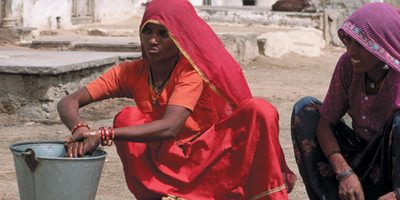
Opportunity for preventive therapies to tackle high rate of cardiovascular disease in rural India
A new study has shown low-cost, effective treatments for the prevention of cardiovascular disease are rarely administered in rural India, where stroke and heart attack are the leading causes of death. The study was undertaken in a rural region of southern India where one-third of deaths are due to cardiovascular disease and there is limited use of low-cost evidence-based therapies to prevent cardiovascular disease.
Lead author, Dr Rohina Joshi from The George Institute says, "The key finding from this new analysis is that while many treatments for the prevention of cardiovascular disease are low-cost and effective, the uptake of these drugs has been limited in this rural area of India. There is a real opportunity for low-cost, simple and therefore appropriate interventions to help prevent cardiovascular disease in rural India."
Preventive therapies, such as aspirin have been proven to reduce the risk of cardiovascular events, particularly among patients who have already experienced a heart attack or stroke. However, there are considerable treatment gaps in developing countries, where the use of such drugs could make a significant impact on the rising death rate.
"This reflects several barriers related to unavailability and unaffordability of preventive treatment as well as shortage of trained healthcare professionals in this rural region of India," added Dr Joshi.
More than half of all cardiovascular deaths occurred in patients under 70 years of age, which directly impacts a large number of main income-earners for families. The study shows that 41% of all cardiovascular deaths in this rural area of India occurred under 65 years of age, compared to only 17% in the same age group in the USA.
"As many deaths occur in a much younger age group compared with developed countries, cardiovascular disease is having a significant economic and social consequence among families, especially in rural India. This provides a significant opportunity for evidence-based, low-cost, simple interventions to make a major impact on a leading cause of death."
This research is vital guidance for the development of appropriate models of care for other rural populations, as more than 70% of the Indian population lives outside cities.
This study was completed as part of the Andhra Pradesh Rural Health Initiative (APRHI), which is collaboration between The George Institute and The University of Queensland in Australia, the Byrraju Foundation, the Centre for Chronic Disease Control (CCDC) and the CARE Foundation in India. Since 2003, the APRHI group has worked to identify the main health problems in the region and to develop evidence-based methods of dealing with them.




